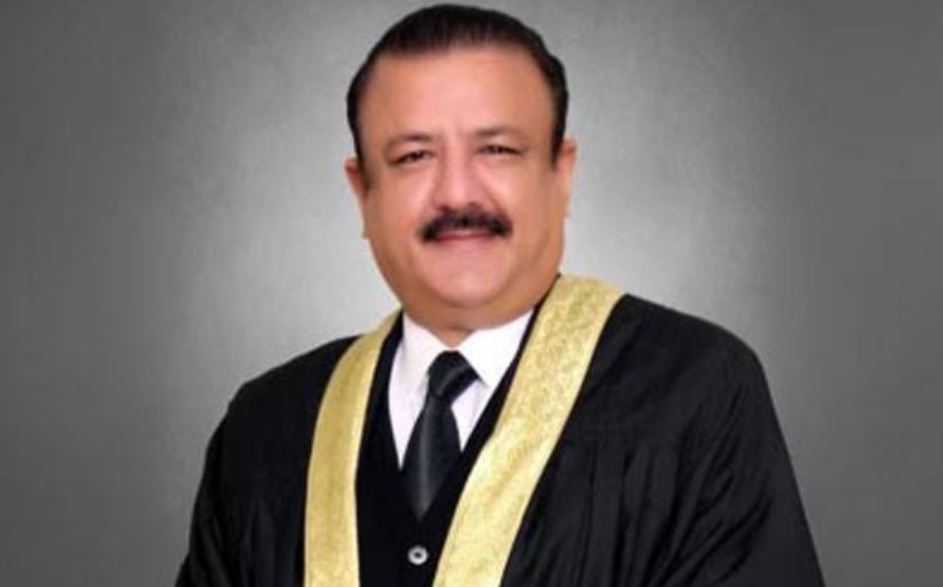Tensions ran high at the Sindh High Court (SHC), Pakistan on Thursday as Islamabad High Court (IHC) Justice Tariq Mehmood Jahangiri’s request to participate in proceedings challenging his law degree was denied. A two-judge constitutional bench, led by Justices Mohammad Karim Khan Agha and Adnan-ul-Karim Memon, stated that it would first determine whether the petitions filed last year were legally maintainable before considering Justice Jahangiri’s application.
Accompanied by IHC Justice Saman Rafat Imtiaz, Justice Jahangiri emphasized his right to be heard, arguing that he had not been notified prior to Karachi University’s decision to revoke his degree. The bench’s refusal sparked objections from petitioners’ lawyers, who demanded their concerns be addressed first.
Allegations Against Judge Raise Questions of Due Process
The controversy centers on alleged irregularities in Justice Jahangiri’s law degree, earned in 1991. University records reportedly list two enrollment numbers linked to his name, including one originally assigned to another student. These discrepancies prompted the university’s Unfair Means Committee and Syndicate to cancel the degree.
Justice Jahangiri, barred from exercising judicial duties by an IHC bench earlier this week, maintained that he earned his degree legitimately. He told the SHC that the proceedings were unprecedented, describing the situation as the first instance of a sitting High Court judge being treated as if under accusation.
Lawyers and Petitioners Protest Bench Decisions
Thursday’s proceedings saw a large gathering of legal professionals both inside and outside the courtroom. Many expressed dissatisfaction with the handling of the case, chanting slogans and staging protests outside the SHC. Petitioners’ lawyers argued that their objections should be resolved before the court could consider the judge’s right to intervene, and eventually walked out after their demands were not met.
Read More: China’s Xi Supports Climate Control taking Global Leadership away from Trump’s America
Senior advocate Faisal Siddiqui highlighted that any decision on maintainability should involve the aggrieved party, while Barrister Salahuddin Ahmed questioned the transfer of the case from the original constitutional bench. The lawyers also criticized the Sindh Higher Education Commission for seeking urgent intervention despite acknowledging it had no direct role in the matter.
Broader Implications for Judicial Accountability
Justice Jahangiri has petitioned the Supreme Court, seeking an expedited hearing to challenge the IHC order that bars him from judicial work. He warned that without intervention, the precedent could allow complaints to be used to suspend any judge, potentially triggering widespread legal challenges across the judiciary.
Observers note that the case highlights both procedural gaps in academic oversight and the delicate balance of judicial accountability. The final SHC order on the maintainability of the petitions, expected in the coming days, may have significant ramifications for the legal community and judicial standards in Pakistan.
The SHC is expected to issue a formal written order detailing the court’s decision on whether the petitions can proceed. Justice Jahangiri’s appeal in the Supreme Court remains pending, and the outcome could influence not only his career but also how similar cases are handled in the future.
GVS News Desk.














